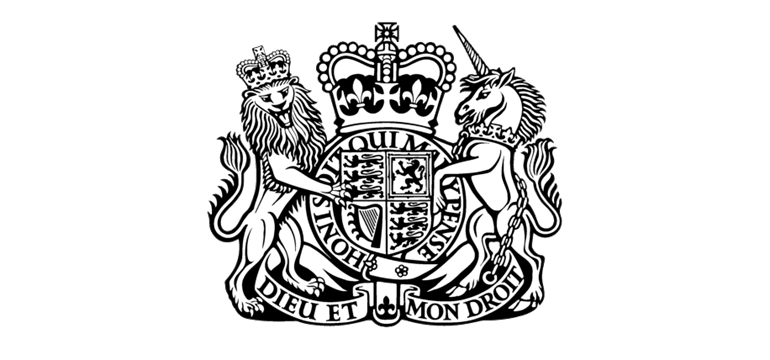Answer these simple questions and we will find you the BEST prices
Which type of solar quotes do you need?
It only takes 30 seconds
100% free with no obligation

Get up to 4 quotes from our selected suppliers by filling in only 1 form

Save money by comparing quotes and choosing the most competitive offer

Our service is 100% free and with no obligation
- Market-Inspector.co.uk
- Blog
- An Easy-To-Follow Vehicle Tracking Laws Guide For The UK
A Guide to Vehicle Tracking Laws in the UK
Vehicle Tracking Legal Issues for Companies and Employees
If your company uses Vehicle Tracking Devices for fleet management purposes, there are a number of rules and regulations that apply to you. Have you ever wondered if your company is following vehicle tracking laws correctly?
Find out below!
It is very important for a company that uses vehicle tracking, or thinks about implementing it, to understand the underlying vehicle tracking laws and what their implications are. As an employer, you need to know your obligations towards your employees and your rights in tracking data.
Failing to comply can lead to fines and convictions. It is sometimes hard to understand the thin line of data protection laws. This page explains what these vehicle tracking laws mean for your business, read on to find out!
A GPS tracker is installed in the vehicle and collects data on time, date, speed and locations. Timely analysis of this data can provide employers with daily reports of performance. This allows them to make faster and more informed decisions.
Most of these benefits are drawn from the fact that employers can track their employees. This can be considered as ‘spying’ or ‘infringement of privacy.’ To protect employees from their employers and any misuse of personal data, there are some established Vehicle Tracking Laws.

Vehicle Trackers and the Law in the UK
It is important that employees are protected from the use of their personal data. Vehicle Trackers track a lot of data that is personally involved with an employee, such as its locations, driving habits and timing. For this reason, vehicle tracking laws apply.
The legal implications of vehicle tracking are based on two legal texts concerning data and human protection of misuse of personal information. These are the Human Rights Act and the Data Protection Act 1998.
The Human Rights Act
Vehicle tracking is governed by the The Human Rights Act. Article 8 covers the privacy right of the individual, in this case, the employee. By this act, it is illegal to misuse any personal data that is obtained through technology such as vehicle tracking. It ensures the right to privacy and confidentiality of personal information.
From the Human Rights Act followed the creation of the Data Protection Act. This act is based on laws from the Human Rights Act and acts as a practical guide to ensure that obligations are met.
Data Protection Act 1998
Vehicle tracking laws in the UK are governed directly by the Data Protection Act. This Act considers collected data that has a direct impact, or can circumstantially impact an employee ‘personal data.’
Personal data has to be treated according to the guidelines specified in the Data Protection Act, which states that “Personal data shall be processed fairly and lawfully, shall be adequate, relevant, accurate and kept no longer than is necessary and moreover obtained only for lawful purposes.”

Vehicle tracking laws ensure that employers respect their employees’ right to data privacy and that any personal data will not be misused.
What Is Allowed in Business Vehicle Tracking?
When a company installs a GPS tracking devices on their vehicles, it should be aware of the rights of the employees and the obligations of the employer. Lots of benefits make it attractive for employers to use vehicle tracking, but the rules limit the freedom of the use.
An example of a rule is that companies can only track vehicles if their employees agree to that. However, it is sometimes hard to see what is legal and what is not. This causes potential risks that the business might not be aware of. This section will highlight some of those risks and their legal implications and possible solutions.
Risks and Legal Implications of Vehicle Tracking Laws
Employers have to act according to vehicle tracking laws and understand the legal requirements of collecting personal data on an employee. Here are some common things that can unintentionally put employers at risk of facing lawsuits or fines.
Tracking to Check Up On Employees
It is completely legal for a company to track their own business vehicles. However, the collected data must only be used for the management purposes of the company.
Tracking devices are not in place to track employees at their workplace. If the data gathered is used for observing employee behaviour, the company is in breach with the vehicle tracking law and risks fines and penalties.
Tracking Outside Work Hours
Sometimes business vehicles are used for personal use by employees. It is allowed to install a GPS tracking device in the business vehicles that are used for private purposes. However, when the employee is using the vehicle outside of working hours, the GPS tracker is not allowed to be turned on.
Privacy tracking can be avoided by a privacy button. This button allows the employee to turn off the data collection and ensure that they are not being monitored outside of their working hours.
Hiding The Tracking Device
Covert tracking means hiding a tracking device in a vehicle. A reasons for hiding a device can be to prevent theft. This is only allowed only with the driver’s consent and knowledge of what kinds of data are being collected.
GPS-Jamming
It is strictly prohibited to use GPS-jamming devices. Anything that can damage, replace or any way abuse or compromise the data collection is highly restricted. The recorded data can be very sensitive and damaging to the individual driving the vehicle when it gets outside company walls.

If you would like to use this infographic on your website, use the embed code below:
Possible Solutions for Vehicle Tracking Risks
As you can see, some of these legal implications of the Data Protection Act are defined by a thin line. When does data become personal and when is it purely business related data? To avoid any risk of employees complaining, here are some tips.
Always communicate thoroughly with all your employees before making any decision or changes regarding the vehicle tracking device. To avoid any confusion and mistakes, make sure that all your employees know and agree to where the device is and what, when and how it tracks.
Keep track of changing rules and regulations. Double check that you are up to date with all the rules. If there are any changes that have an effect on you, implement them in your business.
Confirm that all the devices have all the necessary features, such as the privacy button. Also make sure there are no jamming devices that can compromise the data. Often, your vehicle tracking company can help you figure out what features are the best for your use. Check out different fleet management companies here.
Safeguard all the data that is generated by the device. As an employer it is your responsibility to make sure that no data is leaked, misused or compromised.
Why Does Your Business Need a Vehicle Tracking System?
It has never been easier for companies to monitor their employees and ensure a smooth flow of work. Vehicle tracking helps employers track the location of their vehicles for more efficient fleet management.
Benefits of Vehicle Tracking
There are multiple benefits that the data extraction from GPS trackers can provide. Such as:
Of course, there are more benefits that business vehicle tracking provides.
We strive to connect our customers with the right product and supplier. Would you like to be part of Market Inspector?

